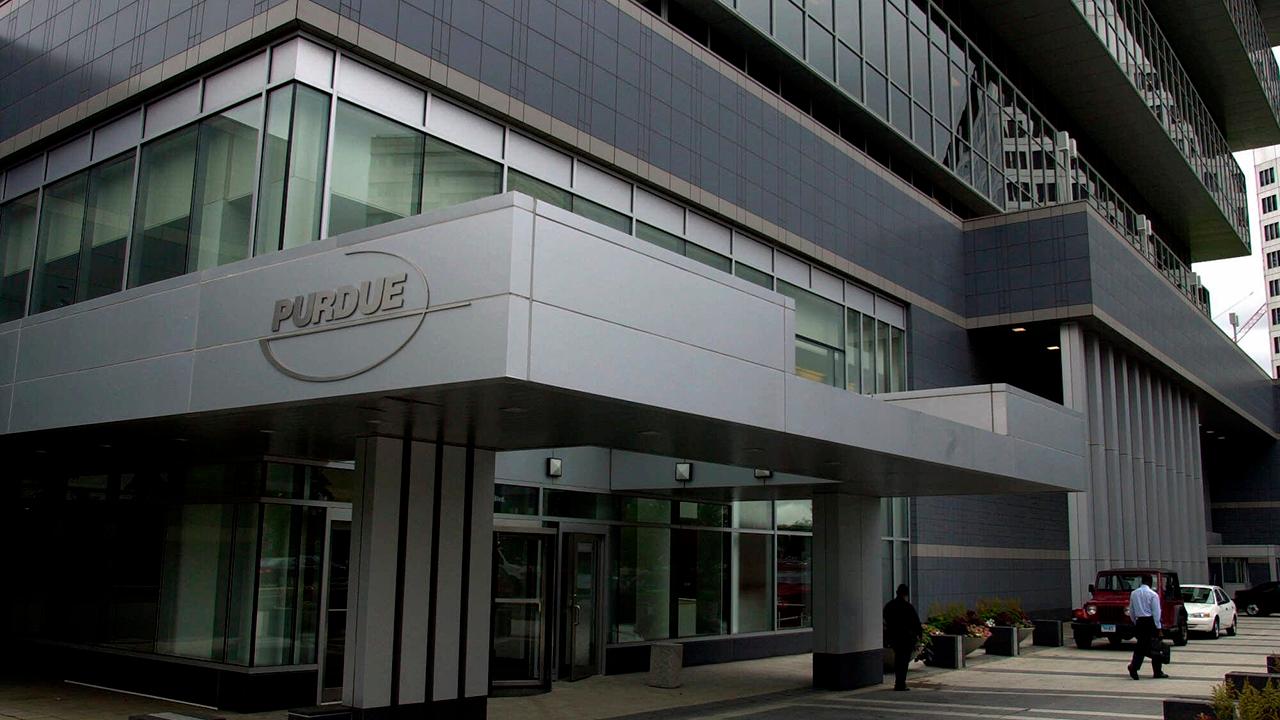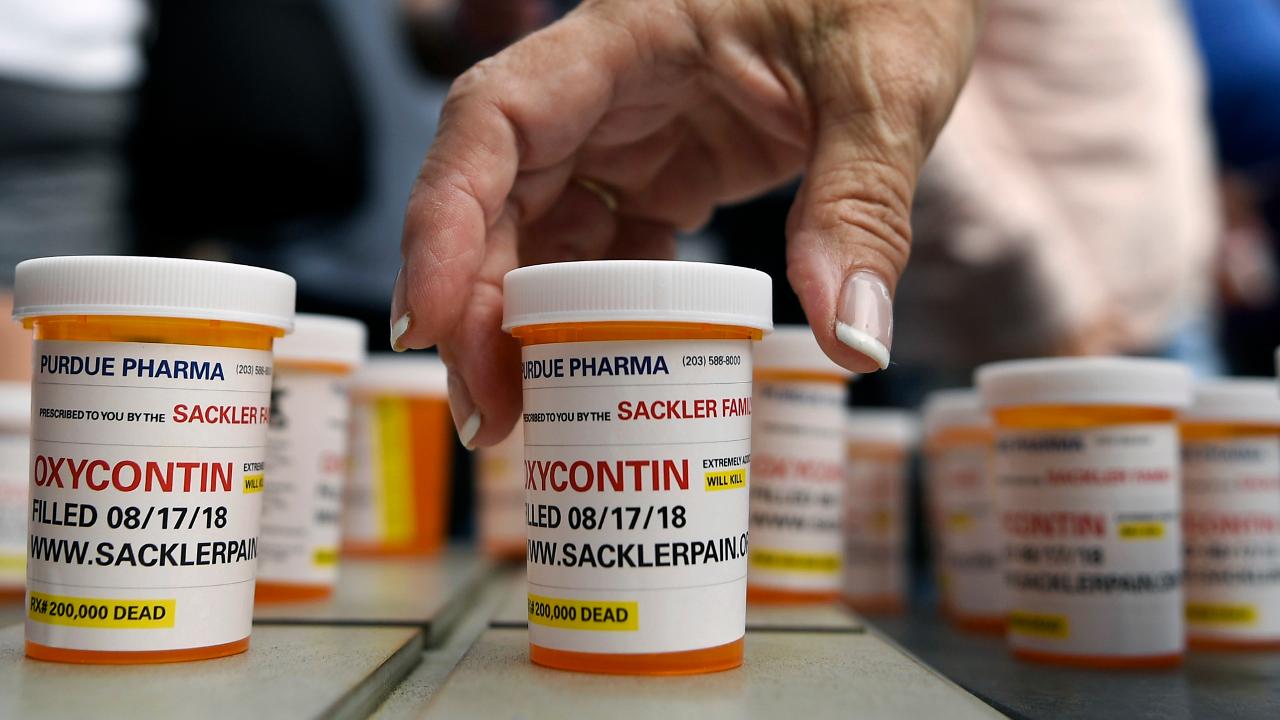Opioid liability focus of House Democrats in new bill targeting Purdue Pharma lawsuits
Congress moves to restrict liability releases sought by Sackler family members
Congressional Democrats are seeking to prevent members of the Sackler family who own OxyContin maker Purdue Pharma LP from using the drug company’s bankruptcy to get legal releases freeing them from government lawsuits over the opioid painkiller.
Rep. Carolyn B. Maloney, D- NY, chairwoman of the House Committee on Oversight and Reform, and senior committee member Rep. Mark DeSaulnier, D-Calif introduced a bill Friday specifying that bankruptcy judges cannot release legal claims brought by states, tribes, municipalities or the U.S. government against a bankrupt company’s owners, like the Sacklers, or its directors, officers or other third parties with ties to a chapter 11 case.
The legislative proposal comes after the Sacklers offered to pay $4.28 billion over the next decade in exchange for legal releases that would resolve lawsuits accusing Purdue of helping fuel the opioid epidemic. The settlement offer is part of a larger multibillion-dollar reorganization plan designed to get Purdue out of chapter 11.
MCKINSEY AGREES TO SETTLE CLAIMS OVER ROLE IN OPIOID CRISIS
Twenty four states attorneys general plus Washington, D.C., have come out against Purdue’s plan and have demanded greater transparency and more upfront money from the Sacklers.
Reps. Maloney and DeSaulnier said their bill “would hold members of the Sackler family accountable for their significant role in fueling an opioid crisis that has claimed nearly half a million lives.”
Representatives for the Sacklers didn’t immediately return messages Friday seeking comment on the bill. A Purdue spokeswoman declined to comment.
Members of the Sackler family have denied wrongdoing in connection with their ownership of the company. Sackler family representatives said when Purdue’s bankruptcy plan was unveiled that they hoped it “will signal the beginning of a far-reaching effort to deliver assistance where it is needed.”
Democratic and Republican members of Congress have accused members of the Sackler family and Purdue of profiting off the opioid epidemic. Former Purdue board members David Sackler and Kathe Sackler were questioned about the marketing of OxyContin and transfer of billions of dollars from the company during a House Oversight hearing in December.
The board’s goal was to create products to help patients and the settlement the family is proposing will provide billions of dollars to help abate opioid addiction and abuse, David Sackler testified at the hearing.
Although the bill is meant to address the Sacklers’ attempt to halt lawsuits through Purdue’s chapter 11 case, the proposal takes aim at a controversial practice lawyers have developed over decades in corporate bankruptcy. The types of legal releases sought by the Sacklers have been approved by judges in some of the largest U.S. bankruptcies filed to resolve thousands of lawsuits over dangerous or defective products and other corporate wrongdoing that affected thousands of people.
WALMART REJECTS US GOVERNMENT'S CLAIMS OF FUELING OPIOID CRISIS
Such a legal release was traditionally available only to a company that filed for bankruptcy and approved by a judge only after all its assets have been scrutinized by creditors.
But in the 1980s insurers of manufacturer Johns Manville Corp., which filed for bankruptcy to resolve a wave of asbestos lawsuits, got a release covering disputes over the underlying insurance policy. Since then, judges have extended this power to extinguish lawsuits even further to a wider circle of company stakeholders who themselves haven’t filed for bankruptcy, said Ralph Brubaker, a law professor at the University of Illinois College of Law who has written critically about the proposed Sackler releases.
The result has been that in some large corporate bankruptcies, company owners like the Sacklers or corporate directors and officers obtain the benefits of a chapter 11 without filing for bankruptcy themselves, Professor Brubaker said.
OXYCONTIN MAKER SETTLES WITH 2,000 PLAINTIFFS ON OPIOIDS
“It’s a misnomer to call this a settlement when you are forcing people to take it whether they wish to or not,” Professor Brubaker said regarding the proposed bankruptcy settlement with the Sacklers.
Professor Brubaker said that although the bill introduced Friday was a good first step to rein in releases, it doesn’t go far enough because it only protects claims brought by states, municipalities, government agencies and tribes. The bill also includes an exception for lawsuits related to asbestos.
Stamford, Conn.-based Purdue filed for chapter 11 protection in September 2019, tipped into bankruptcy by thousands of lawsuits related to OxyContin. Members of the Sackler family who own Purdue will have no role in the company’s governance or operations when it leaves bankruptcy, the company has said.
CLICK HERE TO READ MORE ON FOX BUSINESS
Instead, under the company’s chapter 11 plan, Purdue will be overseen by a new, independent board focused on addressing the opioid crisis and developing and distributing medicines to reverse overdoses and treat opioid addiction.
Purdue’s bankruptcy plan could be challenged in coming months by opioid victims and state attorneys general. Judge Robert Drain of the U.S. Bankruptcy Court in White Plains, N.Y., is expected to consider approving Purdue’s bankruptcy plan in August, according to court documents





















